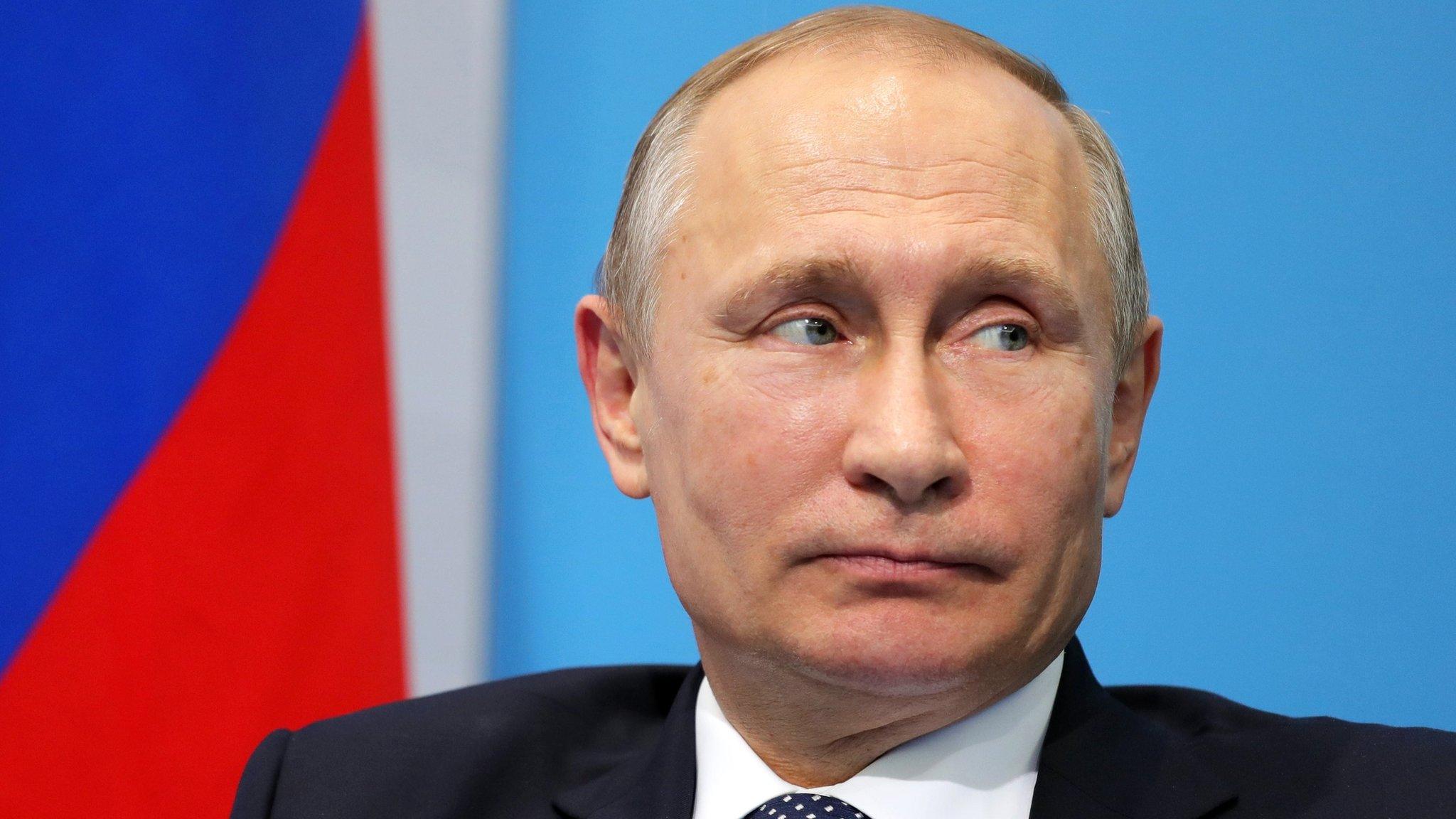US punishes key Putin allies over worldwide 'malign activity'
- Published
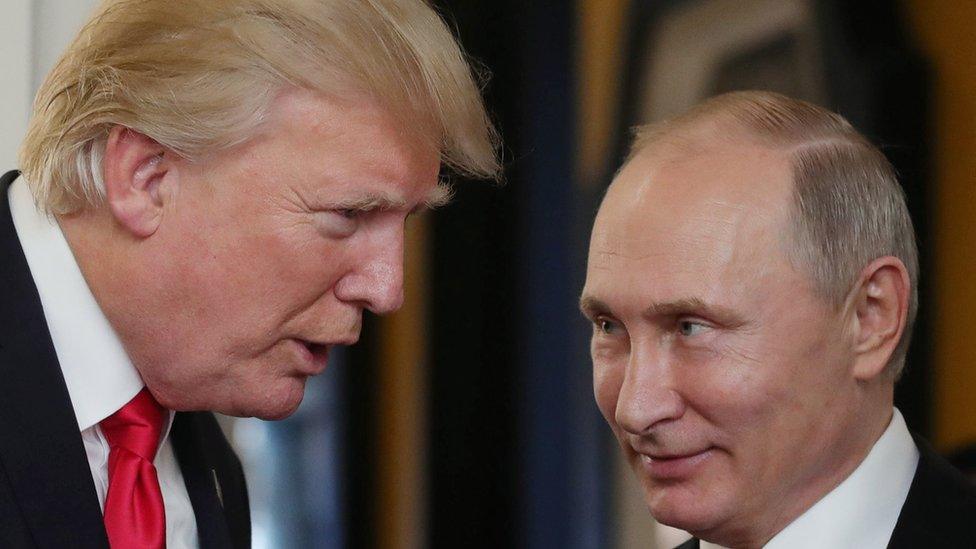
It is the most aggressive move against Russia taken by President Trump's administration
The US has imposed sanctions on seven Russian oligarchs and 17 senior government officials, accusing them of "malign activity around the globe".
Twelve companies owned by the oligarchs, the state arms exporter and a bank are also sanctioned.
Treasury Secretary Steven Mnuchin said the penalties targeted those profiting from Russia's "corrupt system".
The move was a response to Russia's alleged meddling in the 2016 US presidential election, he said.
The sanctions are also being imposed because of the actions taken by the Kremlin in Crimea, eastern Ukraine and Syria, Mr Mnuchin said in a statement on Friday.
He accused the Russian government of "malicious" cyber-activities and said the sanctions would target "those who benefit from the Putin regime".
"The Russian government operates for the disproportionate benefit of oligarchs," he added.
It is the most aggressive action taken by the Trump administration thus far against Moscow.
Last month the US imposed sanctions on 19 Russians, accusing them of interference in the 2016 election and alleged cyber-attacks.
The US has also expelled dozens of Russian diplomats in response to the poisoning of a former Russian spy in the UK.
Who's been targeted?
Among those targeted is Oleg Deripaska, a billionaire aluminium magnate and Putin associate with ties to President Donald Trump's former campaign chairman Paul Manafort.
Also on the list is Suleiman Kerimov, who is one of Russia's richest men. His family controls Russia's largest gold producer, Polyus, and he has an estimated net worth of $6.3bn (£4.7bn).
In November, Mr Kerimov was placed under formal investigation in France on suspicion of tax evasion.
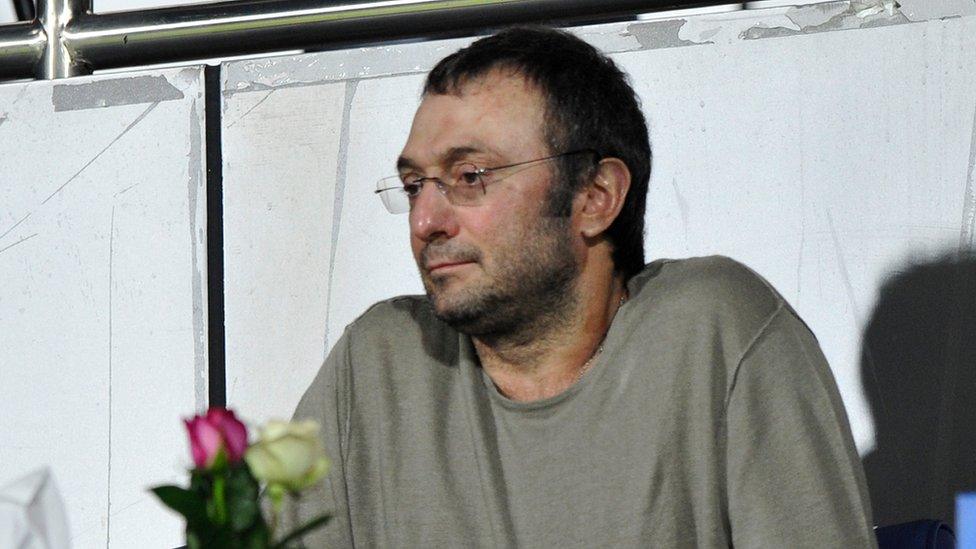
Suleiman Kerimov is one of Russia's richest men
Alexander Torshin, a senior Russian official with reported ties to the National Rifle Association of America (NRA), has been blacklisted.
Mr Putin's bodyguard, his son-in-law, the head of Russia's national security council, and former prime minister Viktor Zubkov are also sanctioned.
Russian state arms exporter Rosoboronexport, one of the companies targeted, said the sanctions were designed to force Russia out of the global arms market.
Any assets they have under US jurisdiction have been frozen and US nationals are forbidden from doing business with them.
"This is unfair competition in its purest form," a spokeswoman told Reuters news agency.

Raising the stakes
Barbara Plett Usher, BBC News, Washington
This is the most aggressive move against Russia taken by the Trump administration: targeting Vladimir Putin's inner circle.
The name most familiar to Britons will be Oleg Deripaska, a billionaire who was at the centre of a political scandal ten years ago when he entertained Labour's Peter Mandelson and the Conservative shadow chancellor George Osborne on his super yacht.
Of more interest here in the US are his connections to Paul Manafort, Mr Trump's former campaign manager.
Congress passed a law last summer calling for such measures and has criticised the Trump administration for taking so long to act.
But senior officials insist that they have been planning the moves for some time.
These sanctions were already in the works before the nerve agent attack on a former Russian spy in the UK, so are not a direct response to it.
But they add to the rising diplomatic tensions between the West and Russia over that incident, and contrast sharply with President Trump's consistently softer approach to Mr Putin.
Earlier this week, Mr Trump felt compelled to insist he was being tough on Russia but said he still hoped a good relationship with its leader was possible. That seems even less likely now.

All you need to know about the Trump-Russia investigation
What does Russia say?
Russia has vowed that there will be a "tough response" to the new sanctions.
"We will not leave the current and any new anti-Russian attack without a tough response," the foreign ministry said in a statement.
"We would like to advise Washington to drop, as soon as possible, the illusions that they can talk to us in the language of sanctions".
Earlier on Friday, the Russian embassy in Washington said the sanctions were a mistake.
"We are told that these measures are not aimed against the Russian people, but they are," the embassy said in a post on its Facebook page.
It described the sanctions as "a new blow to Russo-American relations."
- Published15 March 2018
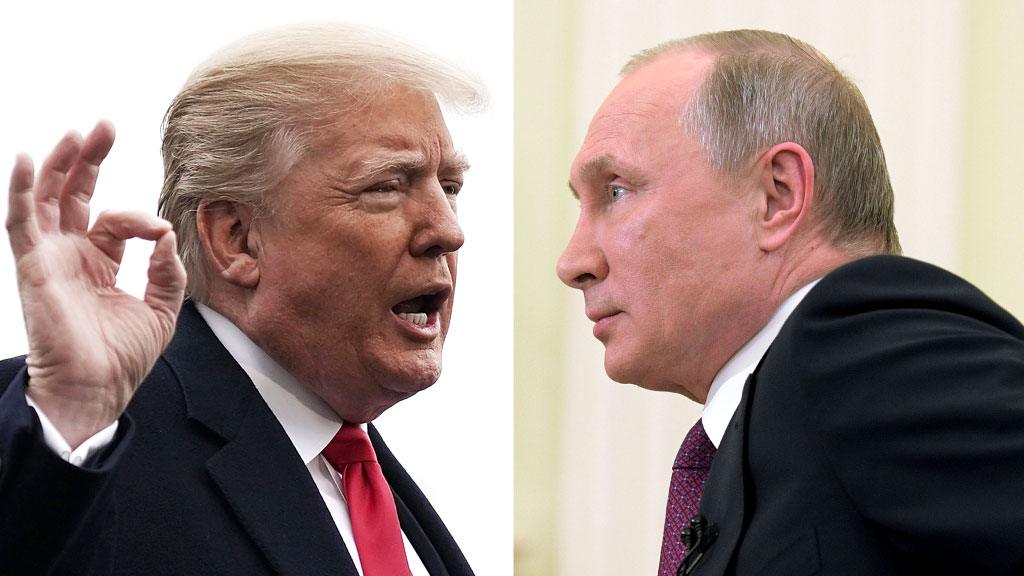
- Published24 July 2019
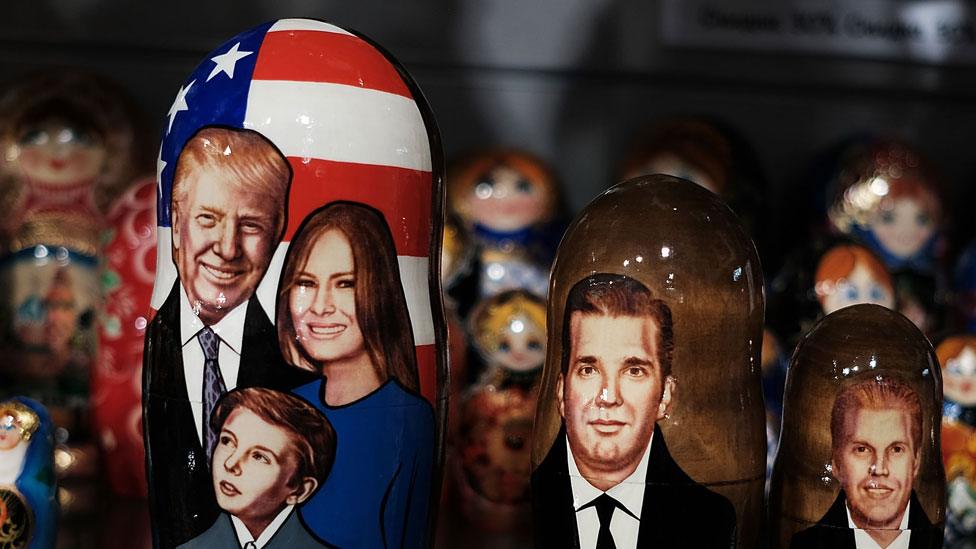
- Published24 July 2019
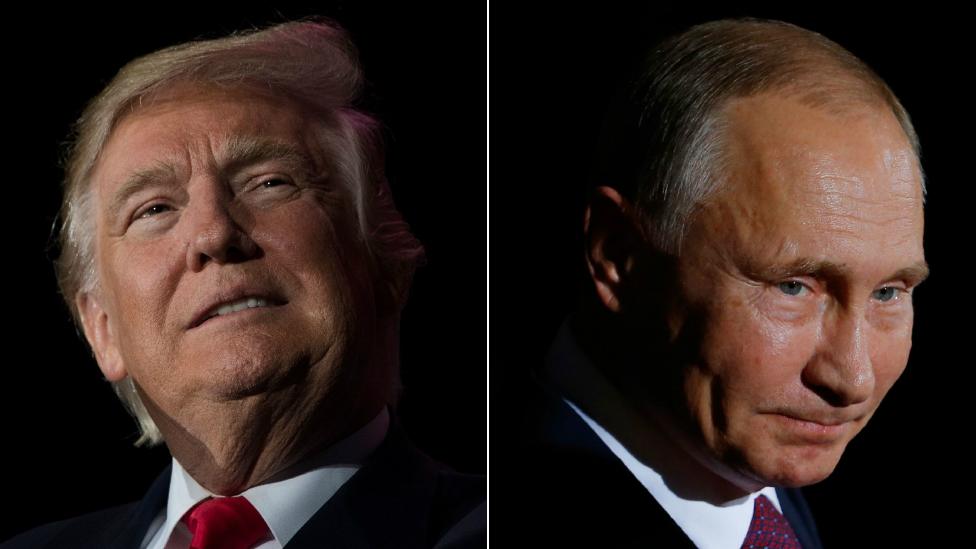
- Published3 August 2017
